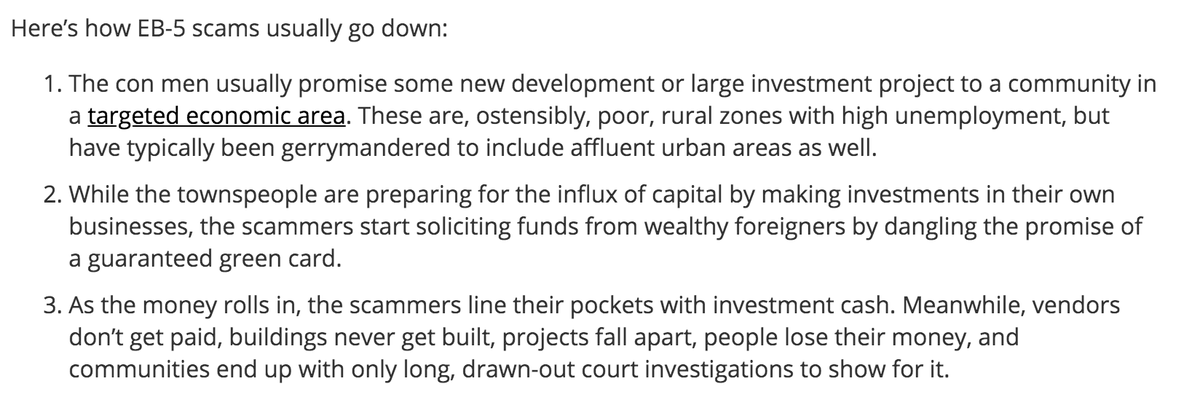A lawyer's thoughts on AB5: a long thread . . .
First, there is a huge problem out there, unknown to most people: there is an underclass of people abused by employers. No minimum wage, no workers compensation, no social security. The problem is typified by Uber/Lyft
but it includes serving staff at restaurants, customer service personnel, phone bank workers, etc., etc.
In the last five years I've seen scores of people inside this abuse. They include dispatchers for a large medical transportation company, bar staff at a craft brewery,
janitorial staff at a private recreation center, laborers for a construction company, referees at a soccer venue, and the list goes on.
You want a job? Hell yes; everyone wants a job! Here are the terms; take it or leave it. Because the simple truth is this: the supply
unskilled and low skilled labor will ALWAYS be greater than the demand. ALWAYS.
The remedy for the employees is limited, because complaints risk further work. Lawsuits are public record, and unscrupulous employers won't hire someone with a track record of suing employers.
AB5 is a remedy to this problem; which has existed for a long, long, time, brought to the fore because taxis have been surmounted by "ridesharing."
But make no mistake, you are not "sharing a ride." You called a cab by another name. And unlike 20 years ago, the money
you pay is not going to the driver who owns the car and performs the labor; most is going to a software owner.
The California Supreme Court addressed this in its Dynamex decision in 2018. But Dynamex, like any other case, is limited to the situation
courts.ca.gov/opinions/archi…
presented, and carveouts were easy. So the Legislature stepped in. AB5 was introduced in December, 2018, and amended NINE times during the legislative process as various legislators, constituents, and lobbyists provided comment. NINE TIMES!
The final bill was the result of the give and take of the legislative process.
So I've spent a great deal of time in the last three months explaining that to clients. Some are errantly subject to the law; they didn't expect it and they don't want it.
So here is my advice.
1. Follow the law. It's good for you, good for your employee (or employer), and good for the state.
2. If you need flexible hours from your employee or employer (-ee/-er) then NEGOTIATE IT. No one gets to dictate to the other.
3. If you are now deemed an -ee, and want to be an Independent Contractor, then work on the exceptions. Outside of specific exceptions, that means you must show you are an individual
- outside of your employer's control;
- not in the same business;
- and having your own independent trade or business.
That's extremely broad; it means, for example, that a busy plumber can't hire a handyman independent contractor to fix a sink; that day laborers cannot exist; and that I cannot
hire a law student to perform research.
So how to get inside those exceptions? The first is usually easy, many people work outside the -er's place of business. The third can be easy as well, simply give yourself a business name, record a fictitious business name, and offer
your services to the world. The second - outside the -er's regular business - is harder, and where future litigation will go. A transportation company (e.g., Uber) makes money by moving people or stuff, and is not going to exclude the drivers from that business.
But what about the janitor for a security company? Or, closer to home, the retired RN (or nursing student) who moonlights by summarizing medical records for me?
The law doesn't answer that question today. That's what litigation is for.
To my knowledge, there are at least two lawsuits pending which challenge the law. In both cases, they are "associations" of people in a particular industry who claim to want to be independent contractors.
But we should ask another question: do they "want," or does their
-er insist?
Much of my Twitter feed is from writers who have been told they can no longer work for some publisher because the publisher has eliminated all CA positions. Rather than hate their (former) -er, they hate the law.
AB5 actually has it's own exception for freelance writers and editors, but I will say as an experienced labor lawyer that this exception is actually unnecessary. Under the pre-Dynaflex "economic reality" test, a freelance editor for an on-line magazine was still an -ee.
If anything, AB5 grants a broad exception to that rule. Without AB5, the -er was taking a risk they didn't need, because penalties always go to the -er. Under the economic realities test, the -ee was letting her -er avoid unemployment, social security, etc.
A fix, if any, is most likely found in the legislative process where it belongs, not in the courts. (That process is faster too.)
Politics is local; call your legislator and ask for a carveout for a particular situation. Let the process do what it's supposed to do.
Thank you for coming to my attempted lawspain.
Questions will be answered as time allows. Your legal situation is yours, and no attempt here can provide customized or universally applicable advice. (I.e., my advice Is worth what you paid for it; don't rely on it!)









